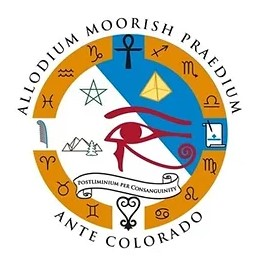Faq Help Center
Have a question for AMPAC? Read the most frequently asked questions (FAQs)
on this page to gain insight. Contact us if your question is not answered.
nationality
Nationality is the quality or character which arises from the fact of a person’s belonging to a nation or state. It determines the political status of the individual, especially with reference to allegiance; while domicile determines his civil status. Nationality arises either by birth or by naturalization.
The nationality of AMPAC Nationals is “Moroccan” as they have been duly nationalize and pledged to a Moorish State government that is part and parcel of the Moroccan Empire.
The nationality of members of the MSTA is “Moorish American” as they are descendants of Moroccans born in America, having political allegiance to the United States of America.
No answer in faqs? ask us
government
The system of polity in a state; that form of fundamental rules and principles by which a nation or state is governed, of by which individual members of a body politic are to regulate their social actions; a constitution, either written or unwritten, by which the rights and duties of citizens and public officers are prescribed and defined, as a monarchical government, a republican government, etc.
Yes. AMPAC is a de jure Moorish State government with jurisdiction over the Colorado trust territory.
AMPAC is structured in a three branches form of government – Executive, Legislative and Judicial.
Our consitution details the inalienable rights of all AMPAC Nationals.
In accordance with our constitution, only AMPAC Nationals can become officials via a de jure election or appointment.
treaty law
In international law, a treaty is a compact made between two or more independent nations with a view to the public welfare treaties are for a perpetuity, or for a considerable time. Those matters which are accomplished by a single act, and are at once perfected in their execution, are called agreements, conventions and pactions.
Treaties are legally binding agreements between two or more countries that involve negotiating the terms and conditions, signing the treaty, ratifying it, and entering it into force. Ratification involves the approval of the executive and/or legislative branches of a country, and once all participating countries have ratified the treaty, it becomes legally binding. Treaties may have reservations, allowing a country to accept some provisions but not others, and may require periodic reviews or amendments to remain effective.
Treaties can only be enforced by States, not individuals. In order to enforce the Treaty of Peace and Friendship between the United States and Empire of Morocco, Moors must first become parties to the contract by establishing a Moorish State government and acceding to the treaty. AMPAC has done her due diligence and acceded to the treaty.
The United Nations (UN) plays a vital role in treaty law, providing a framework for negotiating, adopting, and implementing treaties. The UN assists in the registration and publication of treaties, maintains a treaty database, and helps to promote compliance with treaty obligations through monitoring and enforcement mechanisms. The UN Treaty Bodies and the International Court of Justice are examples of mechanisms that promote compliance with treaty obligations. Overall, the UN serves as a facilitator and promoter of treaty law, fostering international cooperation and peaceful relations between countries.
The Vienna Convention on the Law of Treaties is a multilateral treaty adopted by the United Nations in 1969 and widely ratified by over 110 countries. It is the most authoritative source of international law on the formation, interpretation, and termination of treaties. The Convention establishes rules on the capacity of states to conclude treaties, the form and content of treaties, and the rules for interpreting and applying treaties, as well as addressing issues related to the amendment, termination, and suspension of treaties. Its provisions are considered customary international law and have promoted stability and predictability in international relations.

